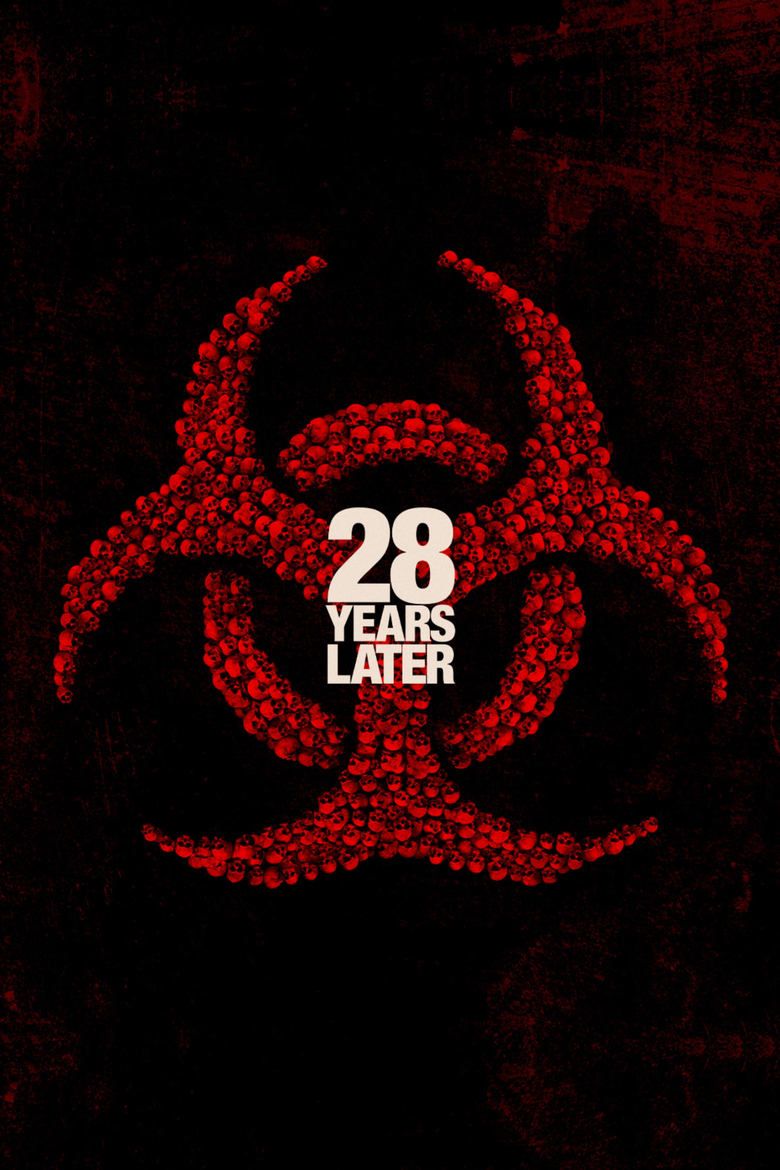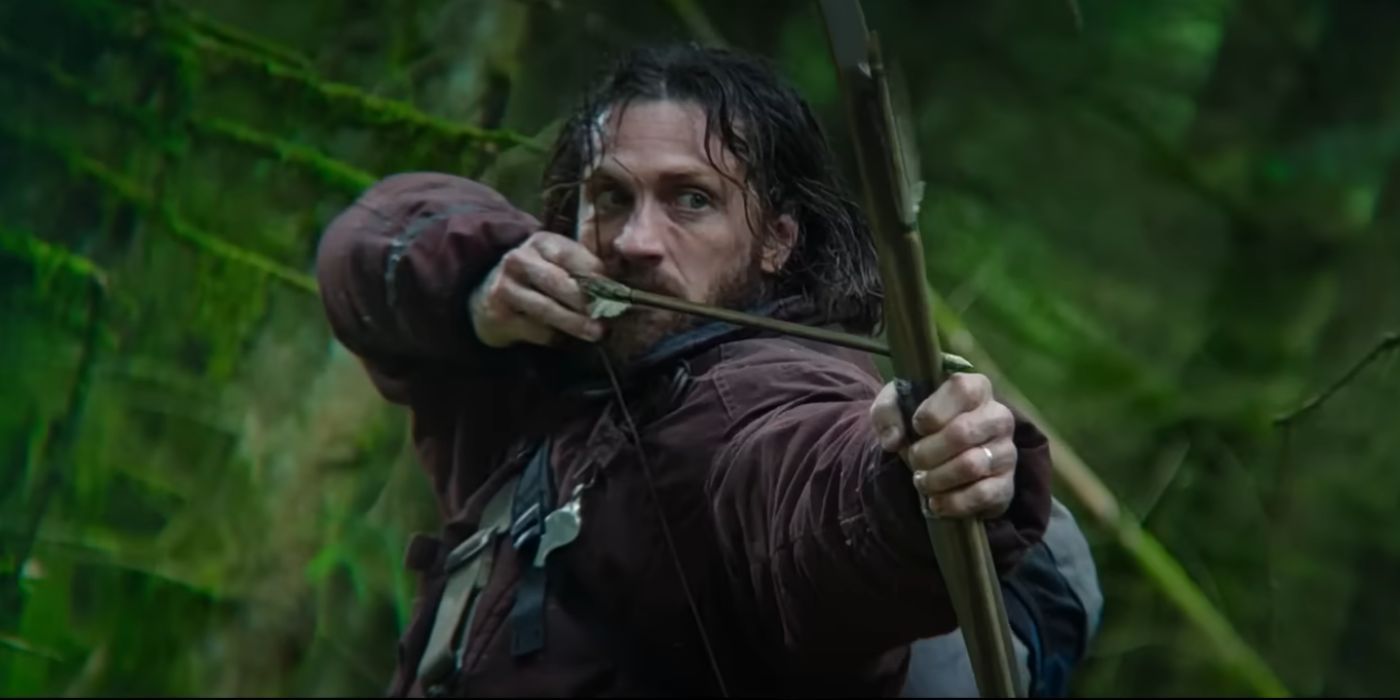Editor’s Note: The following contains spoilers for 28 Years Later.28 Years Later is among the year’s most anticipated films, as it finally reunites director Danny Boyle and screenwriter Alex Garland for another follow up to their modern horror classic 28 Days Later. Although 28 Days Later was known for helping to establish Cillian Murphy as one of the most prominent actors of his generation, 28 Years Later takes a different approach with its protagonist. Established stars like Ralph Fiennes, Jodie Comer, and Aaron Taylor-Johnson may have been heavily teased within the film’s marketing campaign, but the true star of 28 Days Later is Alfie Williams, the child actor who plays 12-year-old Spike.
As the title suggests, 28 Years Later takes place almost three decades after the events of 28 Days Later, and establishes that a small island community has been formed to protect itself from the Rage Virus. As he reaches his 12th birthday, Spike is taken by his father, Jamie (Taylor-Johnson), on a reconnaissance mission to the mainland, which is separated from the island by a single causeway that can be submerged in water when the tides rise. Those expecting just an action-packed thriller may be surprised to find that 28 Years Later is also a thoughtful, meditative coming-of-age story about a young boy coping with the illness of his mother, Isla (Comer). Boyle is no stranger to giving great parts to children, as he’s among the few mainstream directors who can constantly get great young performances in his films.
Danny Boyle’s Films Have Great Child Performances
Immediately after 28 Days Later shocked moviegoers with its transgressive, intense depiction of fast-moving zombies, Boyle inverted audience expectations by making a more family-friendly film. Millions was based on a novel of the same name by Frank Cottrell-Boyce, and took place in a parallel reality where Great Britain was considering changing its currency. While the film deals with serious political and ethical issues, it is told from the perspective of the nine-year-old boy Damian, played in an extraordinary breakout performance by Alex Edel. Boyle was able to filter the film’s complex discussions about ethics in a capitalistic society through the perspective of a child, and Edel gives a performance that is remarkably naturalistic and expressive. Although it was important to have a character with inherent naiveté, Edel showed how Damian grew up to question the financial decisions that were made by his friends, family, community, and government.
Strong child performances were critical to the success of Slumdog Millionaire, the box office smash hit that earned Boyle his only Academy Award for Best Picture and Best Director. Dev Patel was under 18 at the time he played Jamal Malik, but Boyle also used the younger actors Ayush Mahesh Khedekar and Tanay Chheda to play versions of the character at different ages. While each actor brought their own idiosyncrasies to the role, there is a consistency to the character of Jamal, as each performer has the opportunity to give an intimate performance. Boyle also used the young actors Rubina Ali and Tanvi Ganesh Lonkar to play younger versions of Jamal’s love interest, Latika (Freida Pinto), and the child actors Azharuddin Mohammed Ismail and Ashutosh Lobo Gajiwala as his older brother, Salim (Madhur Mittal), during his childhood. Getting just one great performance out of a young actor is a challenge, but Boyle was able to intertwine several in order to make an inspirational epic that examines the evolution of relationships over time.
‘28 Years Later’ Rests on Alfie Williams’ Shoulders
It becomes immediately clear that Spike is the actual lead of 28 Years Later, as he begins to question the rules and procedures that are set in place by the community. An early sequence in which Spike and Jamie venture off into the mainland is absolutely terrifying, as Williams perfectly conveys the sheer terror that a young boy would feel when forced to deal with death for the first time. However, the performance becomes even more complex when Spike begins to lose faith in his father, who seemingly takes a sick pleasure in killing the undead. Spike finally confronts his father after seeing him cheat on Isla with Spike’s teacher, and the young boy decides to take his mother’s well-being into his own hands. Although Spike is rarely given the opportunity to confess his feelings verbally, as he does not have many close friends, the emotions that he is experiencing are evident through Williams’ dynamic physical performance.
Williams is tasked with showing Spike’s complex realizations about society, as he comes to recognize that his community does not truly value life itself. Although his concerns are dismissed as being naive by his father, Spike is empowered to sneak onto the mainland to search for someone who could offer a cure to his mother’s illness. Williams certainly holds his own in the action scenes, as a lifetime of training has prepared Spike to defend himself against the undead. However, the film reaches its emotional climax when Spike is forced to face the truth about death — specifically that of his mother’s — when he meets the philosophical Dr. Kelson (Ralph Fiennes). These moments become the last between Spike and his mother, and the chemistry between Comer and Williams makes them incredibly profound and tender. Even in a film that is filled with groundbreaking digital camerawork, the naturalistic emotions that Williams brings to the screen lay the groundwork for the movie’s powerful moments.
Boyle has been getting even better in his work with child actors, as Williams’ work in 28 Years Later is vastly superior to the performance given by Megan Burns in the original 28 Days Later. While other recent Boyle films, such as Steve Jobs and 127 Hour,s incorporated child actors for critical flashback scenes, 28 Days Later was unafraid to make Spike the uncontested protagonist. There was already excitement for what Boyle has in mind for the next installment in this franchise, but it’s made even more thrilling just to see Williams return as Spike.

- Release Date
-
June 20, 2025
- Runtime
-
126 minutes
- Director
-
Danny Boyle
- Producers
-
Alex Garland, Andrew Macdonald, Bernard Bellew

